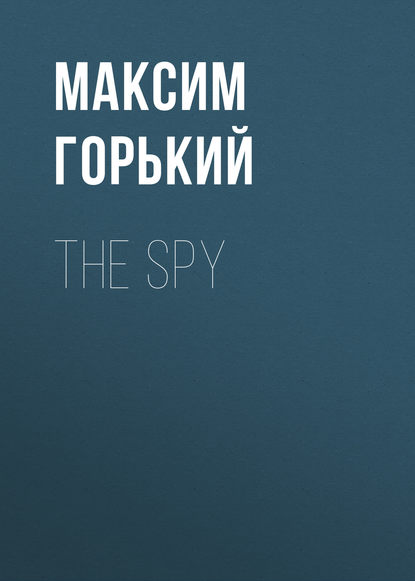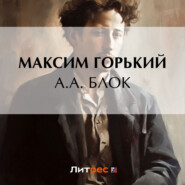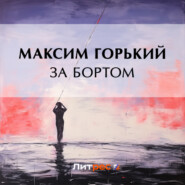По всем вопросам обращайтесь на: info@litportal.ru
(©) 2003-2025.
✖
The Spy
Настройки чтения
Размер шрифта
Высота строк
Поля
But the nearer he got to the Department of Safety the more did his bold mood melt and fade away. The feeling of power became dissipated, and when he saw the narrow dull alley at the end of which was the dusky, three-storied building, he suddenly felt an invincible desire to find Zarubin, and take leave of him.
"I insulted him," he explained his desire to himself, embarrassed and quickly turning aside from his aim. "I must find him."
At the same time he vaguely felt he could not escape from that which seized his heart and pressed him, drew him on after itself, and silently indicated the one issue from the terrible entanglement.
The problem of the day, the resolve to destroy Sasha, did not hinder the growth of the dark and evil power which filled his heart, while the sudden wish to find the body of the little spy instantly became an insurmountable obstacle to the carrying out of his plan.
He fed this desire artificially, in the fear that it, too, would disappear. He rode about in cabs to police stations for a number of hours, taking the utmost pains in his inquiries regarding Zarubin. When at last he found out where the body was, it was too late to visit it, and he returned home secretly pleased that the day had come to an end.
Melnikov did not put in appearance at his lodging. Yevsey lay alone the whole night, trying not to stir. At each movement of his the canopy over the bed rocked. An odor of dampness was wafted in his face, the bed creaked a tune; he felt stifled, nauseated, and timorous. Taking advantage of the stillness the vile mice ran about, and the rustling sounds they made tore the thin net of Yevsey's thoughts of Zarubin and Sasha. The interruptions displayed to him the dead, calm, expectant emptiness of his environment, with which the emptiness of his soul insistently desired to blend.
CHAPTER XXIX
Early in the morning he was already standing in the corner of a large yard at a yellow hovel with a cross over the roof. A grey humpbacked watchman said as he opened the door:
"There are two of them here. One was recognized, the other not. The unidentified one will soon be taken to the grave."
Then Yevsey saw the sullen face of Zarubin. The only change it had undergone was that it had grown a little blue. The small wound in place of the scar had been washed, and had turned black. The little alert body was naked and clean. It lay face upward, stretched like a cord, with the tanned hands folded over the bosom, as if Zarubin were sullenly asking:
"Well, what?"
Beside him lay the other dark body, all rent, swollen, with red, blue, and yellow stains. Someone had covered its face with blue and white flowers. But under them Yevsey could see the bones of the skull, a tuft of hair glued together with blood, and the torn shell of the ear.
Leaning his hump against the wall, the old man said:
"This one cannot be recognized. He has almost no head. Yet he was identified. Two ladies came yesterday with these flowers and covered up human outrage. As for the other one, he's remained unidentified."
"I know who he is," said Yevsey firmly. "He's Yakov Zarubin. He served in the Department of Safety."
The watchman looked at him, and shook his head in negation.
"No, it's not he. The police told us he was Zarubin, and our office inquired of the Department of Safety, but it appeared it wasn't he."
"But I know," Yevsey exclaimed quietly, in an offended tone.
"In the Department of Safety they said, 'We don't know such a person. A man by that name never served here.'"
"It's not true," exclaimed Yevsey, grieved and dumfounded.
Two young fellows came in from the court, one of whom asked the watchman:
"Which is the unidentified man?"
The humpback pointed his finger at Zarubin, and said to Yevsey:
"You see?"
Klimkov walked out into the court, thrust a coin into the watchman's hand, and repeated with impotent stubbornness:
"It's Zarubin, I tell you."
"As you please," said the old man, shrugging his hump. "But if it is so, others would have recognized him. An agent came here yesterday in search of someone who had been killed. He didn't recognize your man either, though why shouldn't he admit it if he did?"
"What agent?"
"A stout man, bald, with an amiable voice."
"Solovyov," guessed Yevsey, observing dully that Zarubin's body was being laid in a white unpainted coffin.
"It doesn't go in," mumbled one of the fellows.
"Bend his legs, the devil!"
"The lid won't close."
"Sidewise, lay him in sidewise, eh?"
"Don't make such a fuss, boys," said the old man calmly.
The fellow who held the head of the body snuffled, and said:
"It's a spy, Uncle Fiodor."
"A dead man is nobody," observed the humpback didactically, walking up to them. The fellows grew silent, continuing to squeeze the springy tawny body into the narrow short coffin.
"You fools, get another coffin," said the humpback, angrily.
"It's all the same," said one, and the other added grimly, "He's not a great gentleman."
Yevsey left the court carrying in his soul a bitter humiliating feeling of insult in behalf of Zarubin. Behind him he clearly heard the hump-back say to the men as they bore off the body:
"Something wrong there, too. He came here, and says 'I know him.' Maybe he knows all about this affair."
The two men answered almost simultaneously:
"Seems to be a spy, too."
"What's the difference to us?"
Klimkov quickly jumped into a cab, and shouted to the driver:
"Hurry!"
"Where to?"
Yevsey answered quietly and not at once:
"Straight ahead."

















